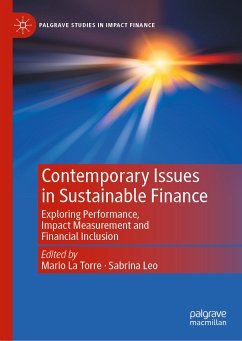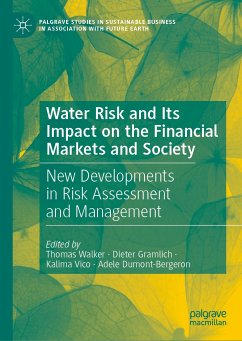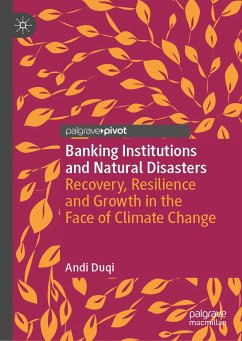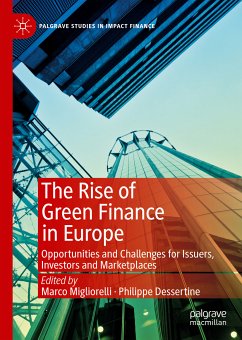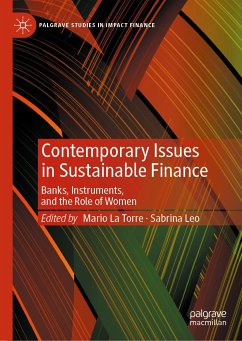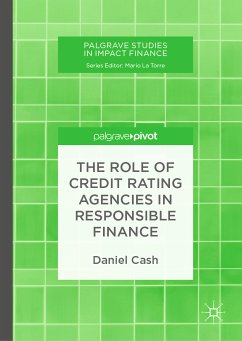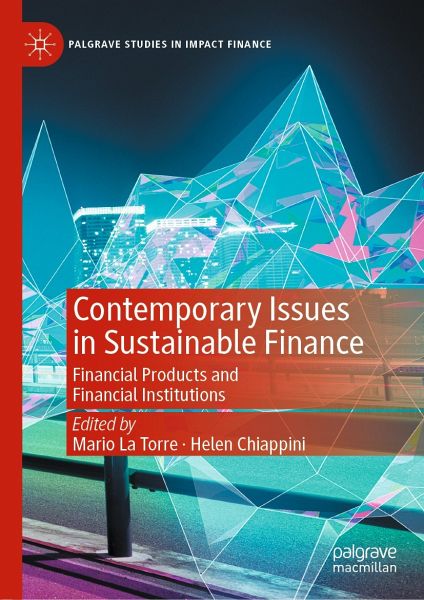
Contemporary Issues in Sustainable Finance (eBook, PDF)
Financial Products and Financial Institutions
Redaktion: La Torre, Mario; Chiappini, Helen
Versandkostenfrei!
Sofort per Download lieferbar
128,95 €
inkl. MwSt.
Weitere Ausgaben:

PAYBACK Punkte
64 °P sammeln!
Offers in-depth analysis and discussion of relevant sustainable products and sustainable initiatives of several financial institutions
Focuses on several innovative products across the sustainable finance ecosystem including social impact bonds, crowdfunding and green bonds
Includes case studies particularly useful for teaching and for practitioners
Focuses on several innovative products across the sustainable finance ecosystem including social impact bonds, crowdfunding and green bonds
Includes case studies particularly useful for teaching and for practitioners
Dieser Download kann aus rechtlichen Gründen nur mit Rechnungsadresse in A, B, BG, CY, CZ, D, DK, EW, E, FIN, F, GR, HR, H, IRL, I, LT, L, LR, M, NL, PL, P, R, S, SLO, SK ausgeliefert werden.



